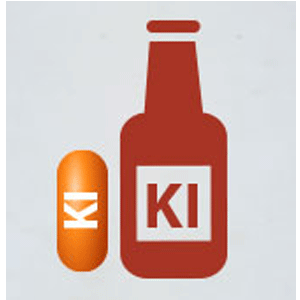
What is Potassium Iodide (KI)? KI (potassium iodide) is a salt of stable (not radioactive) iodine that can help block radioactive iodine from being absorbed by the thyroid gland, thus protecting this gland from radiation injury.
The thyroid gland is the part of the body that is most sensitive to radioactive iodine.
People should take KI (potassium iodide) only on the advice of public health or emergency management officials. There are health risks associated with taking KI.
KI (potassium iodide) does not keep radioactive iodine from entering the body and cannot reverse the health effects caused by radioactive iodine once the thyroid is damaged.
KI (potassium iodide) only protects the thyroid, not other parts of the body, from radioactive iodine.
KI (potassium iodide) cannot protect the body from radioactive elements other than radioactive iodine—if radioactive iodine is not present, taking KI is not protective and could cause harm.
Table salt and foods rich in iodine do not contain enough iodine to block radioactive iodine from getting into your thyroid gland. Do not use table salt or food as a substitute for KI.
Do not use dietary supplements that contain iodine in the place of KI (potassium iodide). They can be harmful and non-efficacious. Only use products that have been approved by the U.S. Food and Drug Administration (FDA).




